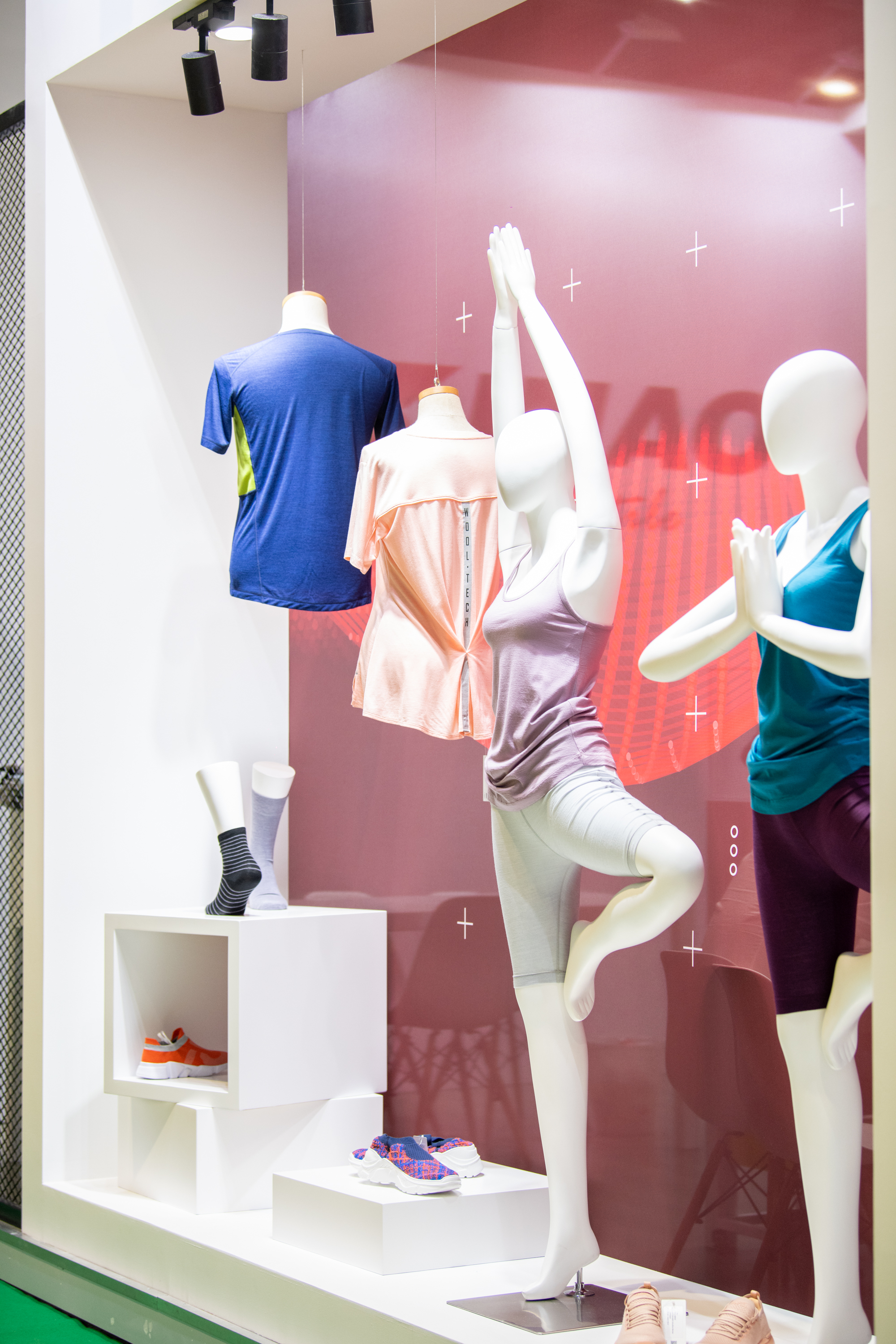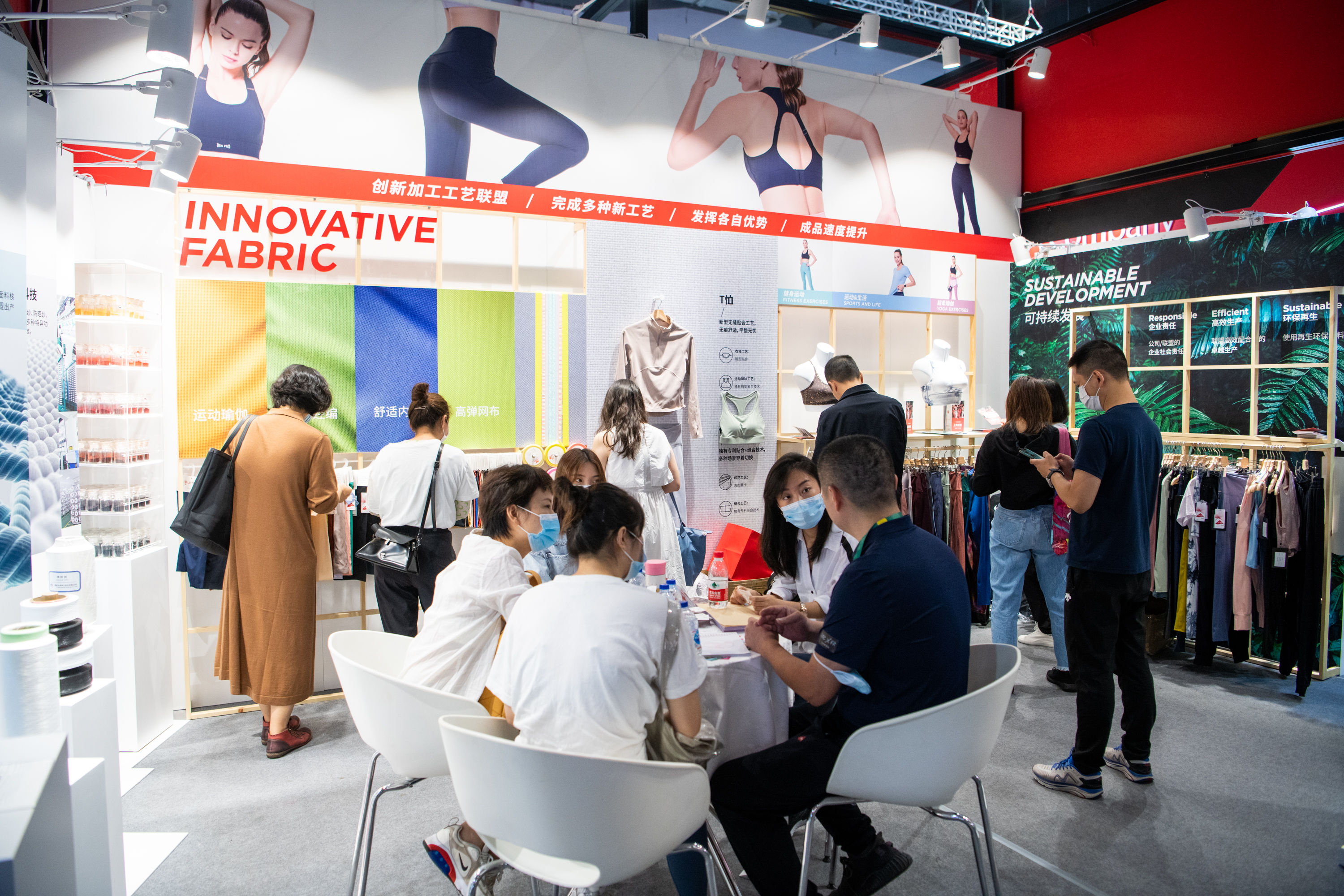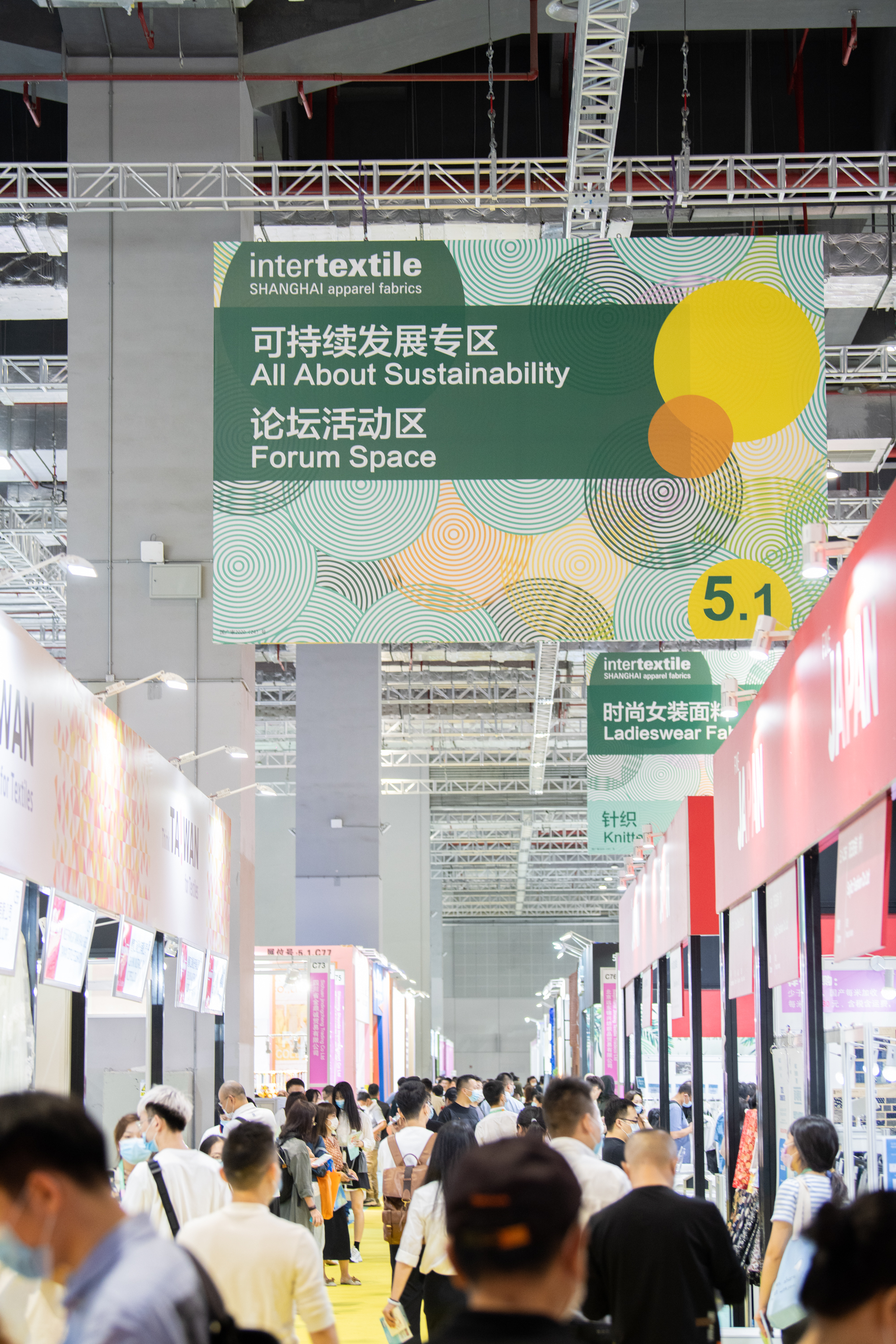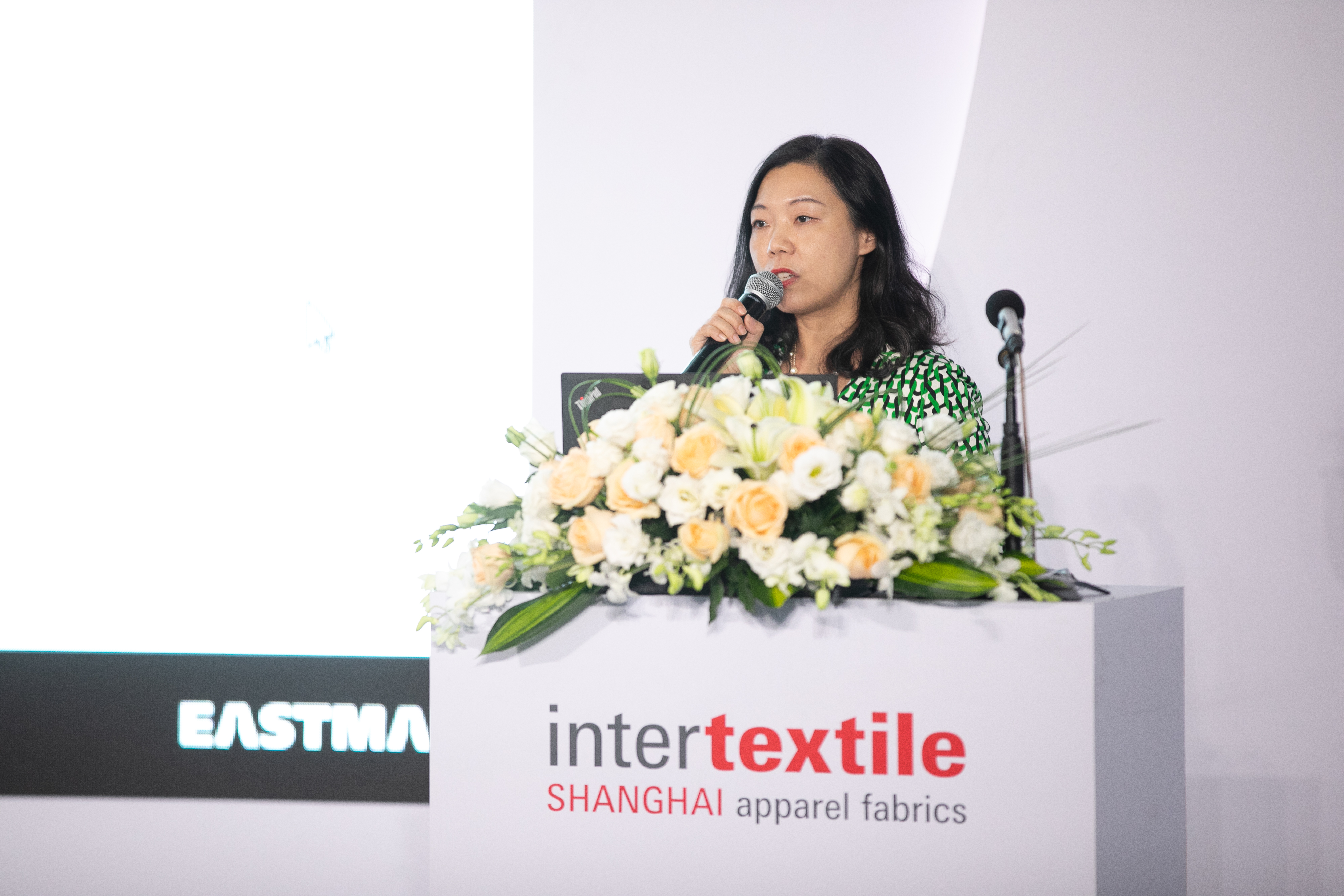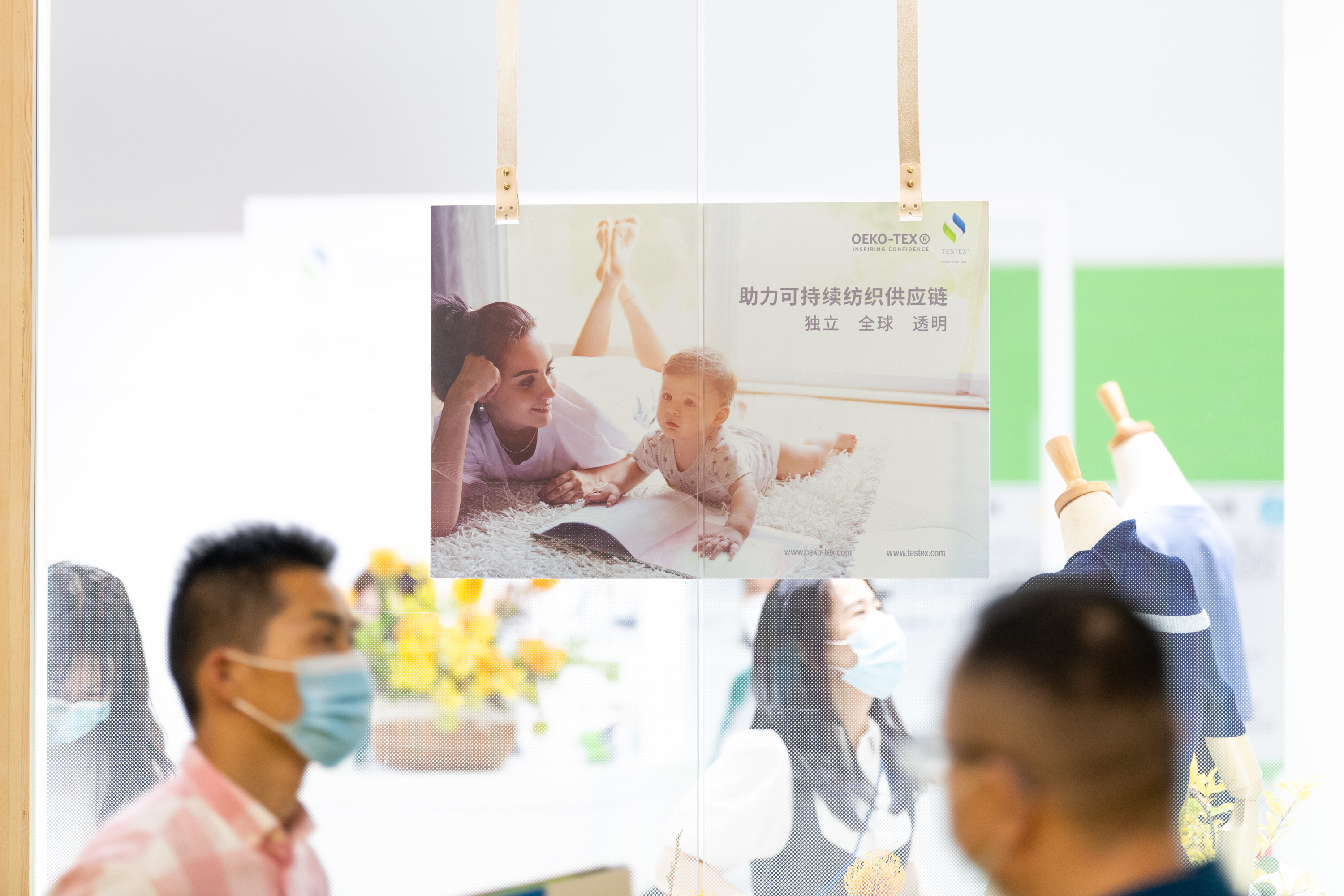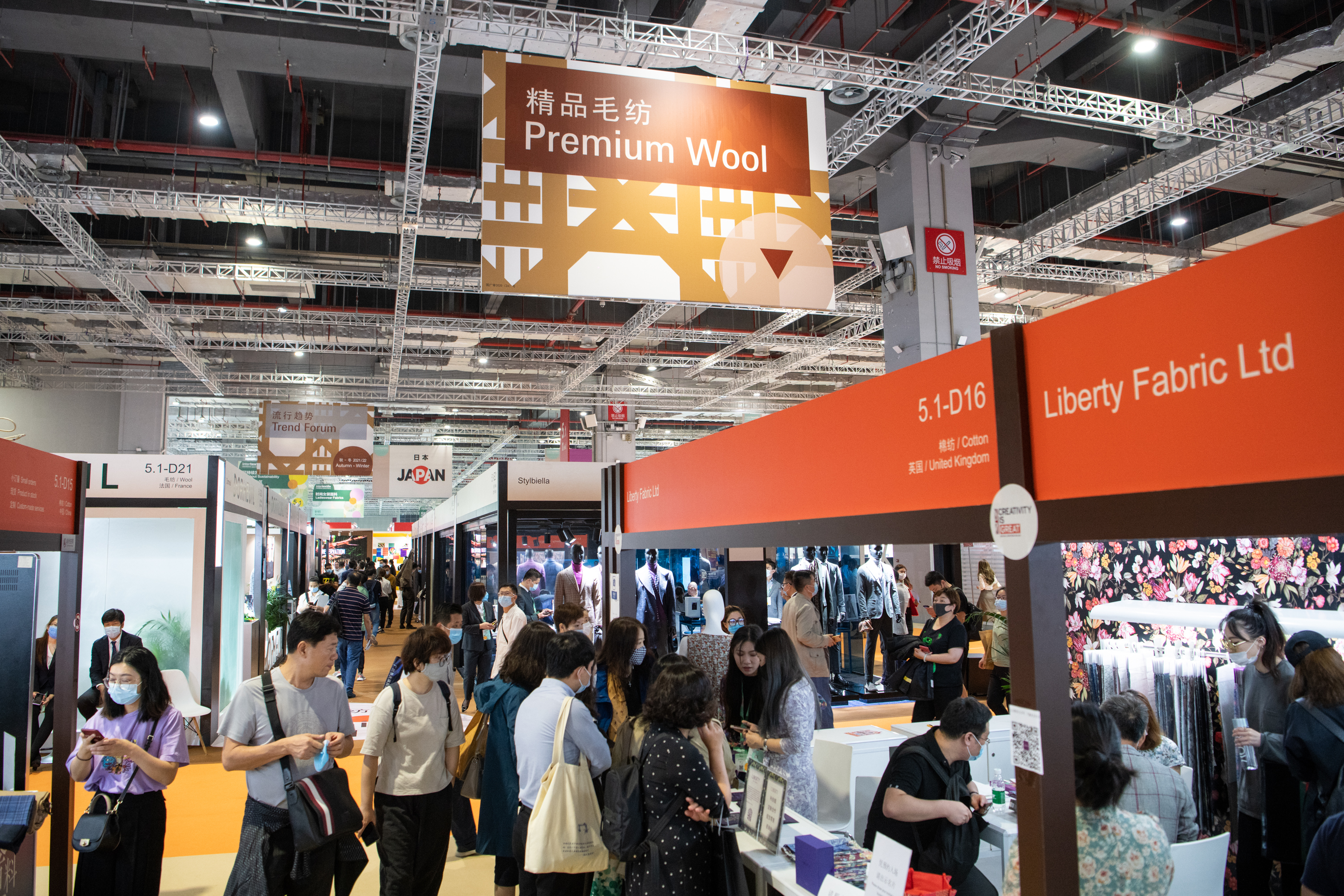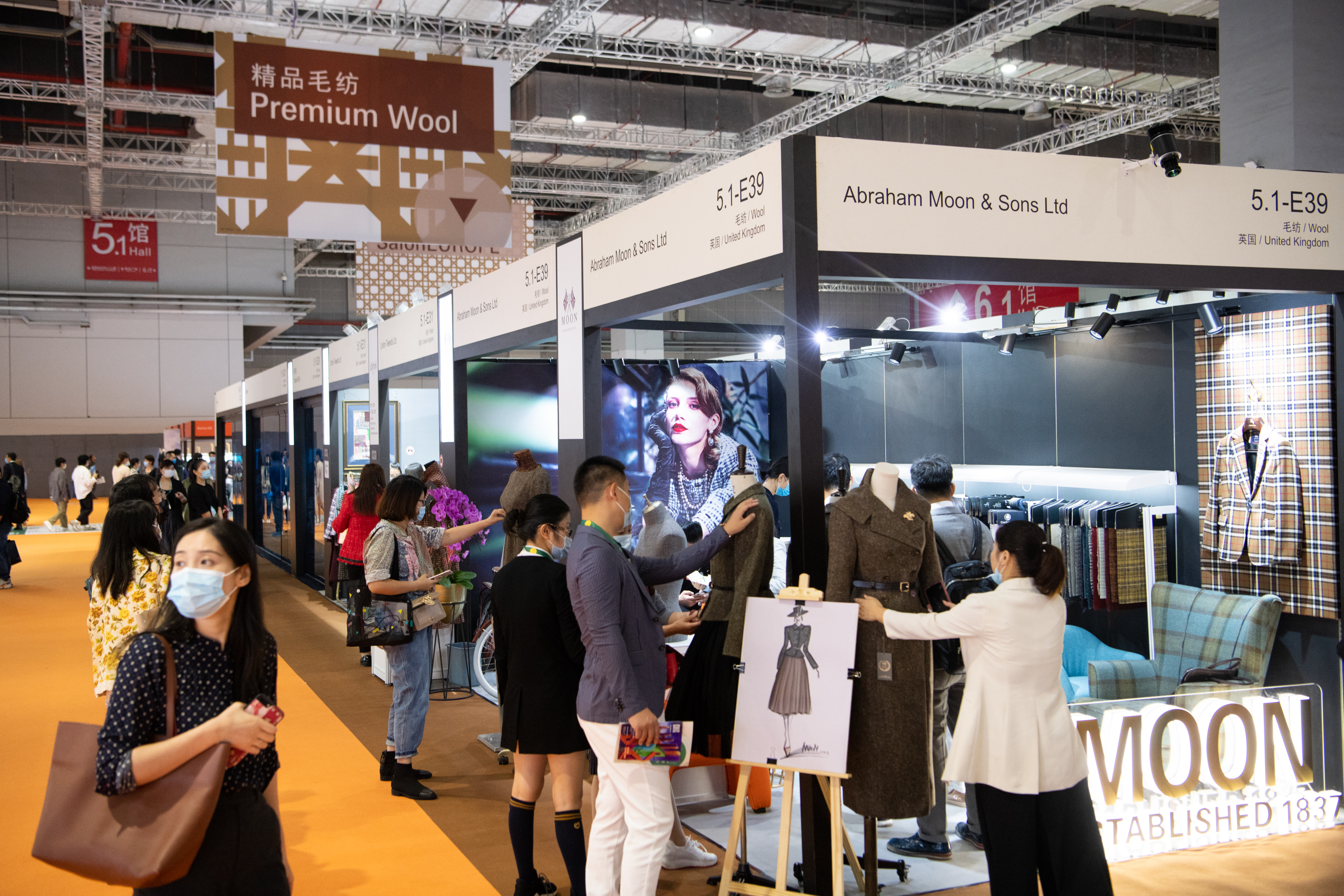Health and hygiene trends prompt innovation at the Functional Lab
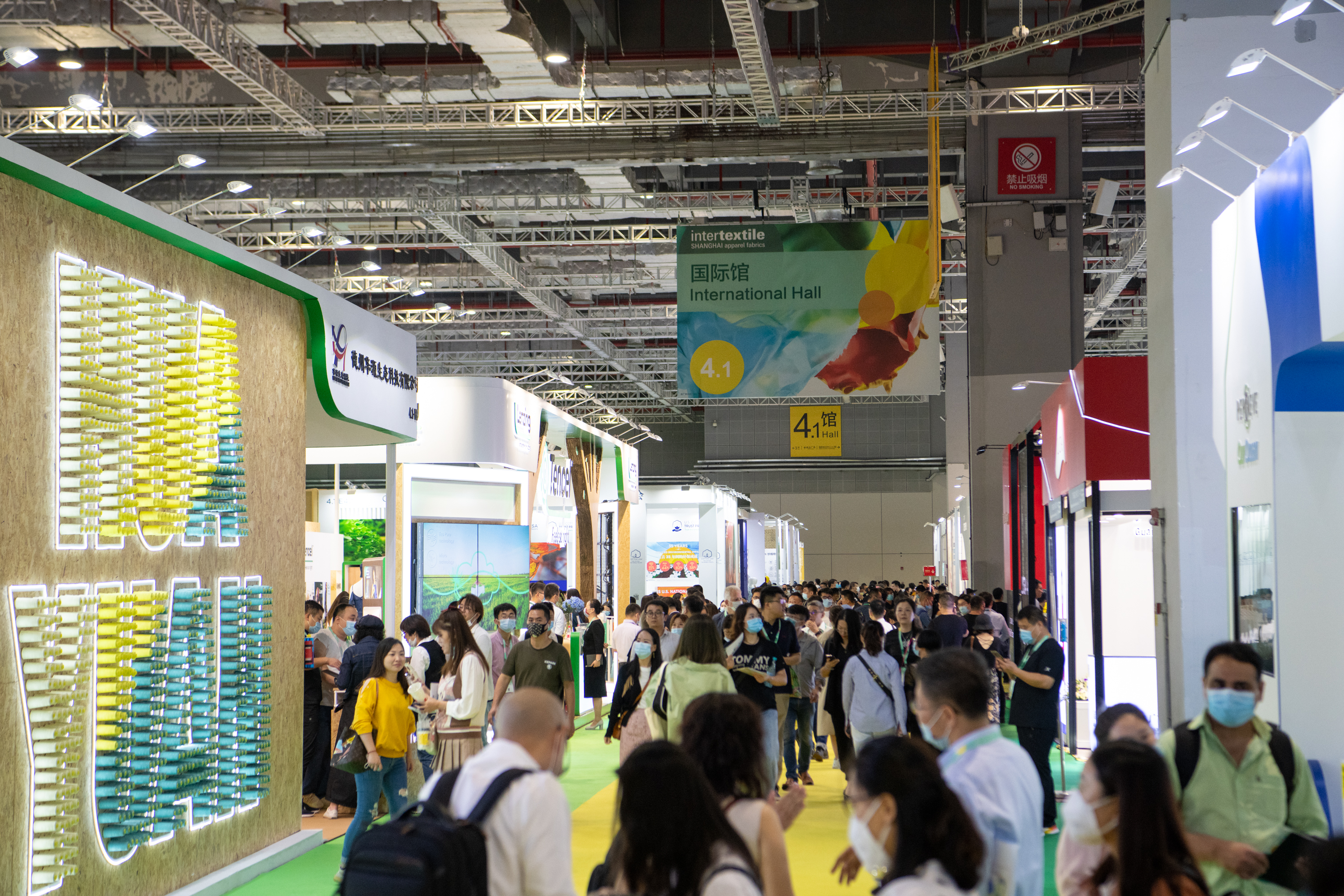
Due to the pandemic, many brands reflected that they have made adjustments to their strategies and products because of consumers’ increasing awareness towards personal protection, hygiene at home and public health. Functional Lab exhibitors in hall 4.1 showcased their latest innovations ranging from antibacterial products to fabrics providing comfort, which were well-received by visitors.
Mr Jerry Du, Technical Marketing Specialist, Hyosung: “The impact of the pandemic was huge on us in the first half of the year, but as the world’s largest spandex producer, our recovery was quite fast because we immediately adjusted our strategy. Amid the pandemic, we’ve launched a spandex yarn for personal protection and generated great sales. Besides new products for protection, we also showcased some new products that are antibacterial, deodorizing and for sports.”
Mr Ethan Yuan, Technical Sales (Textiles), Microban: “We are showcasing our Microban antibacterial, antimicrobial and anti-odour products. With the current healthcare crisis, many people are more cautious about selecting fabrics for personal hygiene, and antibacterial and odour-related products. This year, we noticed that more buyers are actively coming to our booth, learning about our products and understanding their long-term benefits. Our products have been very well-received internationally and we are pleased that they are gradually gaining more traction in China. Furthermore, I think functional fabrics will remain a focus in the future. Due to their versatility, they can be used on many clothing applications whether it be active or casual wear.”
Mr Kenny Liu, Sales Manager, Hansk New Materials: “As a healthcare product R&D firm, we specialise in antibacterial and insect prevention additives used in a variety of textile products. We are able to find opportunities in the pandemic crisis as more people focus on personal hygiene. Knowing that the clothing and fabric they wear will protect them from insects and bacteria, can offer consumers peace of mind. I think these products will also be in demand in the post-pandemic world as people continue to be more cautious about personal health and protection.”
Mr Steven Stewart, Vice President – Apparel Asia, The LYCRA Company: “The pandemic impacted the export demand for apparel quite heavily earlier this year, however we see this as short term as markets are gradually reopening and slowly returning to normal. The products we are featuring today were already in development before the pandemic, but we continued to develop and launch them because we felt they were needed. For example, LYCRA MyFit Fiber focuses on shape and comfort – as more people are working from home, comfort and leisure wear are going to be ongoing trends. Furthermore, we also noticed an increase in active wear, indicating more people are working out in the current healthcare crisis.”
Mr Changzhao Wang, Marketing Director, Lu Thai Textile: “Future products will develop to follow trends of being healthier and more environmentally friendly with a focus on functional, sports, comfort and human nature. The traditional direction was about being stylish, but the future direction will be about what the consumer feels, such as comfort, coolness and warmness, as well as about sustainability. Consumers will be more sensitive towards what they can touch.”
A generation of change – Covid-19 spurs demand for sustainability
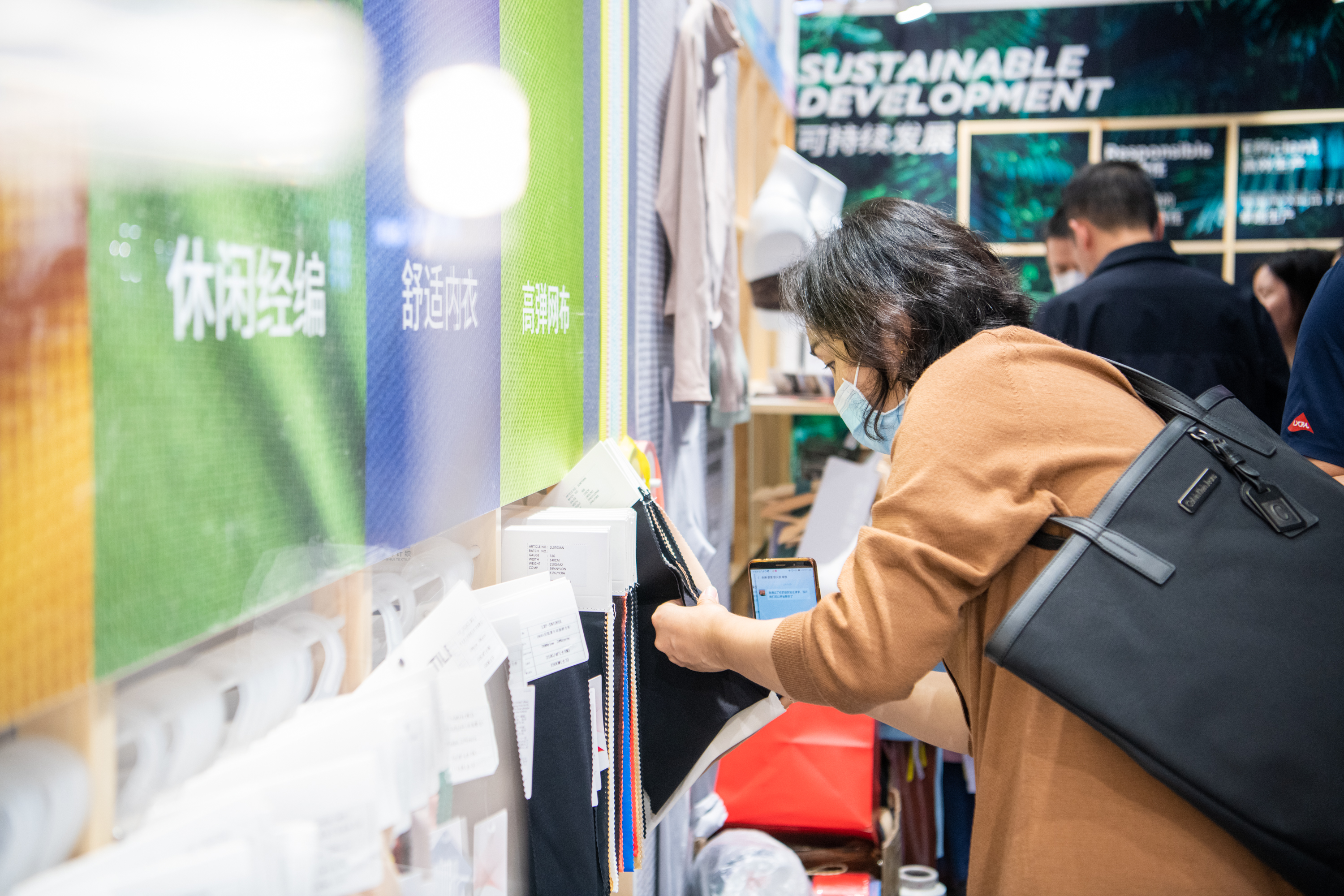
Exhibitors view the pandemic as a big opportunity to further promote sustainable and environmentally friendly products. As part of Intertextile’s fringe programme, a product presentation on ‘How to fulfil consumer needs for comfortable and sustainable fashion in the post Covid era’ was delivered by Ms Lily Zhang, Regional Market Leader, Asia, Eastman Chemical to share the company’s latest findings about the behavioural changes of female consumers in regards to sustainable products and their choices of clothing.
E-commerce: a silver lining during the pandemic crisis?
As more buyers are sourcing online because of the pandemic, exhibitors agreed on the importance of: varieties in style, small quantity orders, stock availability and speedy delivery times. Those who can respond well to these demands and seize every business opportunity, for example the trading and communication platform offered by Intertextile, are more optimistic about the industry’s recovery from the disruption caused by the pandemic.
Ms Rachel Huang, Head of Operations and Sales, Greater China & Far East, Liberty: “Due to the rapid growth of e-commerce, the post-pandemic cycle of supplying fabrics to apparel companies will be shortened. As the process from design to ready-to-wear and product launch shortens, we will be asked to provide stock at a faster speed, while stock variety is also required.”
Mr Xiao Peng, Sales Director, Cavallo 1886: “We are a distributor of the UK’s premium wool brand, Abraham Moon & Sons. There’s still demand for overseas products in China and that’s why the fair attracts many international brands. Some of our customers even placed an order onsite on the first day of the fair. Besides our brand reputation, what makes us successful is that we have a lot of stock – over 2,000 varieties all available in large quantities – which means we can quickly respond to e-commerce and brand buyers no matter the size of their orders.”
Mr Steven Stewart, Vice President – Apparel Asia, The LYCRA Company: “I did see more leisure and natural based fabrics on display which are targeted to provide maximum comfort. Furthermore, we noticed huge growth in the e-commerce sector in China and have had a number of visitors representing e-commerce platforms and new clothing brands showing interest in what we have to offer. LYCRA MyFit Fiber offers an extended fit range which is a great fit for e-commerce platforms, as it can easily accommodate consumers who are in-between sizes.”
Mr Changzhao Wang, Marketing Director, Lu Thai Textile: “As the pandemic created an oversupply of certain fields in the short term, some businesses have been restructured which has enhanced the structure of supply chains. Businesses that were a burden to the environment were eliminated, which I think is helpful to the textile industry.”
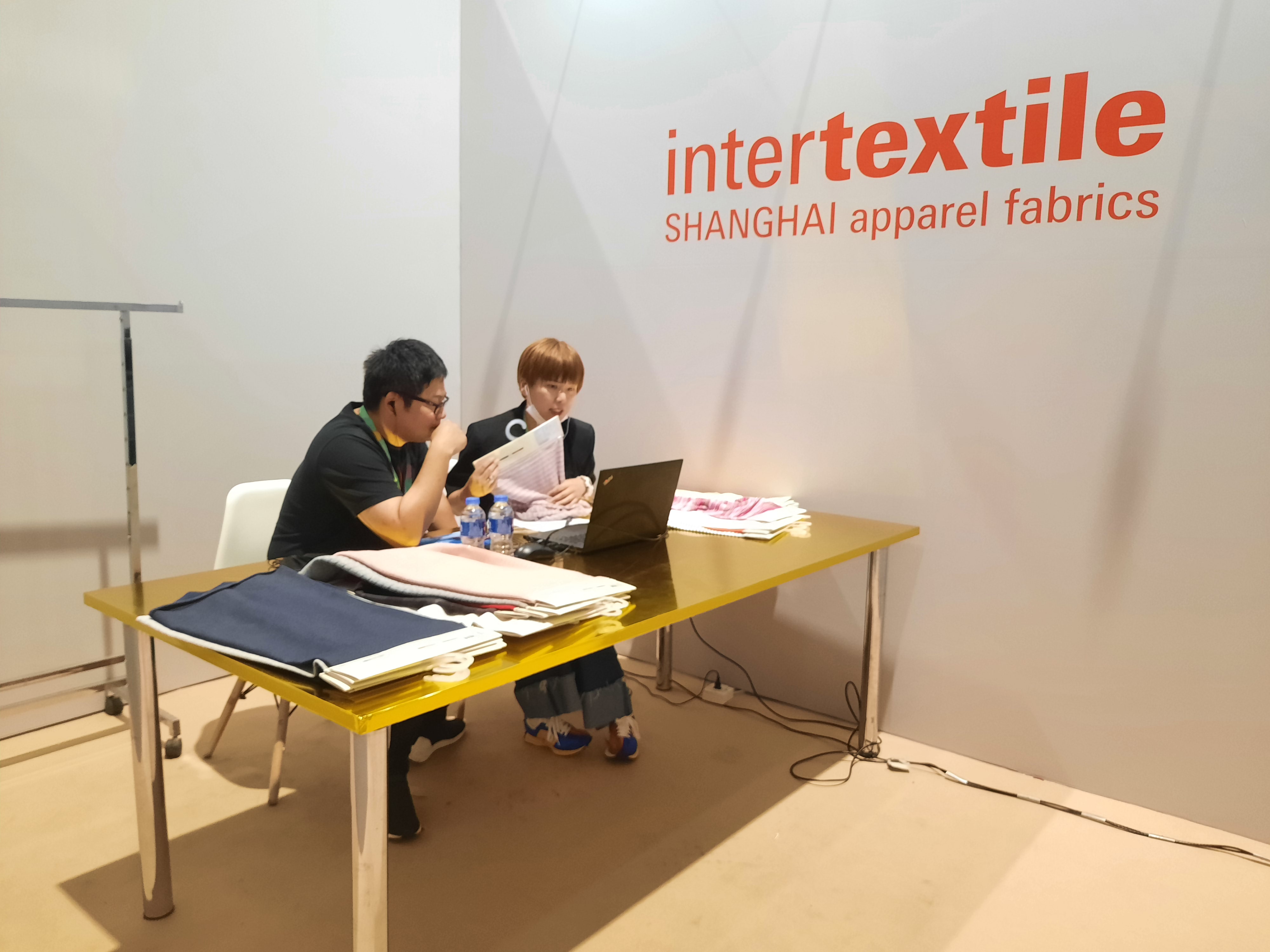
In order to help exhibitors seize the opportunities in a time of crisis, Intertextile has introduced new digitised solutions to better connect exhibitors and buyers, which include the Intertextile mobile app and the online business matching platform Connect PLUS. A new Hybrid Showcase has also been integrated into the physical fair at the Autumn Edition 2020, displaying the products of overseas exhibitors for onsite buyers to touch and feel.
Mr James Nam, President, NK Fabric: “Due to COVID-19, we didn’t travel to the fair. But we joined Intertextile’s Hybrid Showcase and sent over some fancy knits for display, which are our company’s most popular products. We gained around 40 new contacts – some of them are our target customers and we started talking with them via emails after the fair. As this was the first time we joined a hybrid format trade fair, we didn’t expect so much and we are satisfied with the results.”
Further supporting the textile industry’s recovery, the upcoming Spring Edition of Intertextile Shanghai Apparel Fabrics will be held from 10 – 12 March 2021 at the National Exhibition and Convention Center (Shanghai). The fair is co-organised by Messe Frankfurt (HK) Ltd; the Sub-Council of Textile Industry, CCPIT; and the China Textile Information Centre.
For more details on this fair, please visit: www.intertextileapparel.com. Information from the international textiles sector and Messe Frankfurt’s textile fairs worldwide can be found at: www.texpertise-network.com.
Download press materials
- ITSA20-CS1 (pdf, 1 MB)
